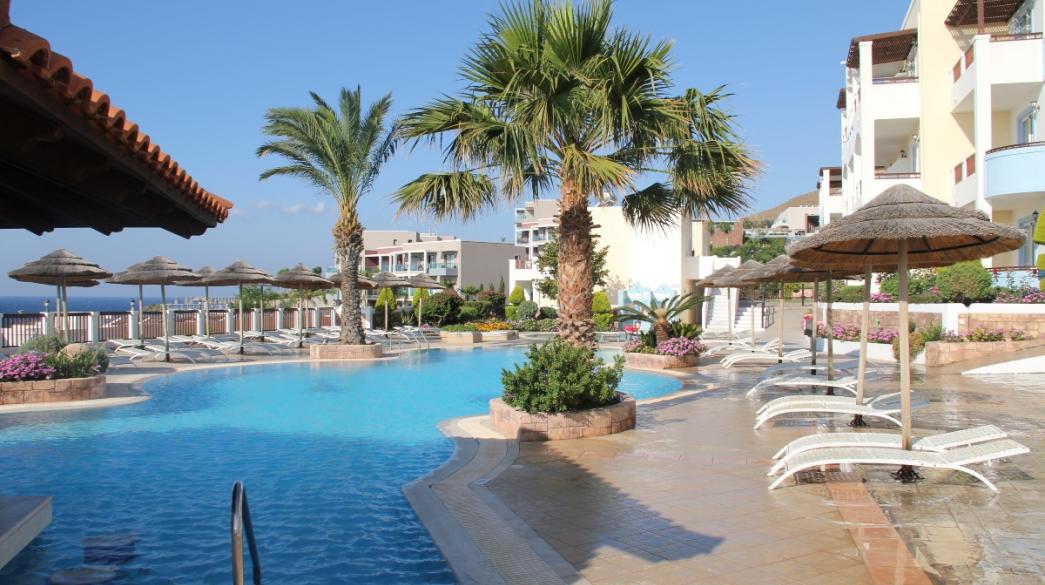Plans to open up Greece's tourism industry as of July remain uncertain as 7 out of 10 major hotels, based on current data, plan to remain closed this year, while the market is not convinced of government plans to attract 15 million visitors in 2020, while the messages arriving from Brussels on the relaunch of air transport and tourism, are not encouraging.
According to Business Daily sources, there is a lot of concern in the tourism sector about current conditions with most hotels preferring to stay shut in June and July. The reasons that have led hotel owners to this unprecedented decision are:
1-Uncertainty about visitor numbers remains large. Limits on European flights are expected to be extended until June 15, effectively canceling plans to open year-round hotels June 1. As a result, there is no visibility on how to lift restrictions on flights at a European level, boosting uncertainty on government plans to open hotels from July onwards, as bookings so far are zero and the ones that do arise may not be enough to bring in enough revenues to cover operating costs.
2-The conditions and cost of operating units are also covered by a veil of uncertainty, as it will be necessary to take unprecedented measures to prevent the transmission of the virus, a factor bumping up operating costs, although Tourism Minister Haris Theocharis assures that there will be no exaggerations and that hotels will not be turned into hospitals. However, there is always the risk of some cases emerging in hotels. In the case of this occurring, hotel owners and managers will be forced to introduce restrictive measures in their premises, creating massive financial problems for the business.
3-Shutting down a hotel for the year allows owners to avoid operating costs, mainly staff costs, and retain the right to participate in state support programs that already exist or will be activated in the future. Also, it would enable hotel managers to renegotiate with banks existing debts.
Based on this data, especially for popular island destinations in the country, the most likely scenario for this summer is for a drop in visitors and revenues in the sector of more than 80 percent.
Government plan not convincing
In the tourism market, officials are not convinced by the government's plan to mitigate the effects of the crisis. This plan, according to the government, could bring in 15 million people this year and total tourist receipts of 8 billion euros, so that the reduction compared to last year is to the order of 50-60 percent.
The government aims to attract visitors on the one hand with transnational agreements with countries that did not have a severe problem with the coronavirus, such as Israel or some Balkan countries. Additionally, it is aiming at securing special agreements with major tour operators to attract visitors from other markets, highlighting the comparative advantage that Greece has gained as a country that successfully managed the pandemic.
However, these plans are not considered by many as being realistic and some say that it is no coincidence that ministers have repeatedly spoken about new agreements, without making any progress so far.
On Wednesday, the European Commission is expected to present its plan for air transport and tourism, under the general heading "Europe needs a break", according to Reuters. However, the Commission's plan does not seem to fully meet the needs of countries such as Greece, where tourism accounts for a large chunk of GDP, as it continues restrictions on travel in new forms throughout this season.
The Commission's tourism strategy is based on targeted restrictions to replace a general travel ban and gradually lifting controls at internal borders, where health conditions have improved. However, the document states that "until there is a vaccine or treatment, the needs and benefits of travel and tourism must be weighed against the risks of re-facilitating the spread of the virus, which may lead to a resumption of restriction measures.









